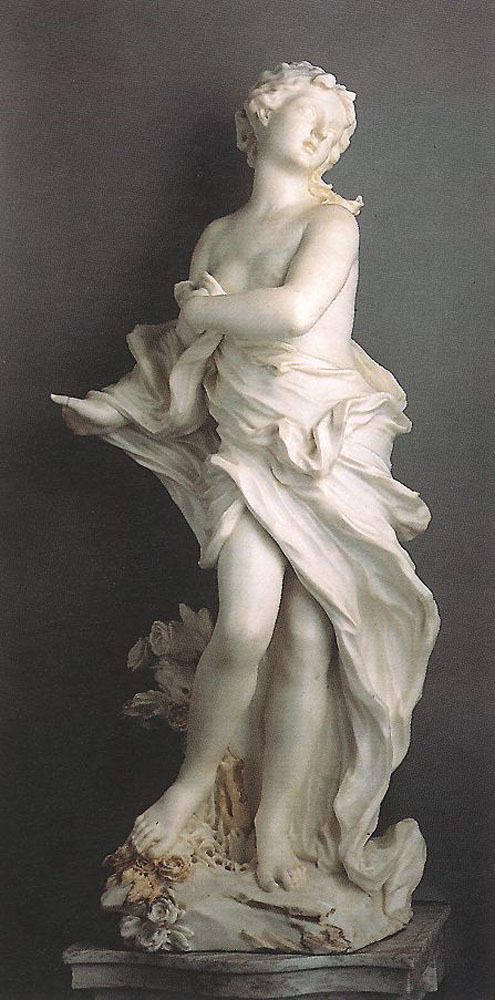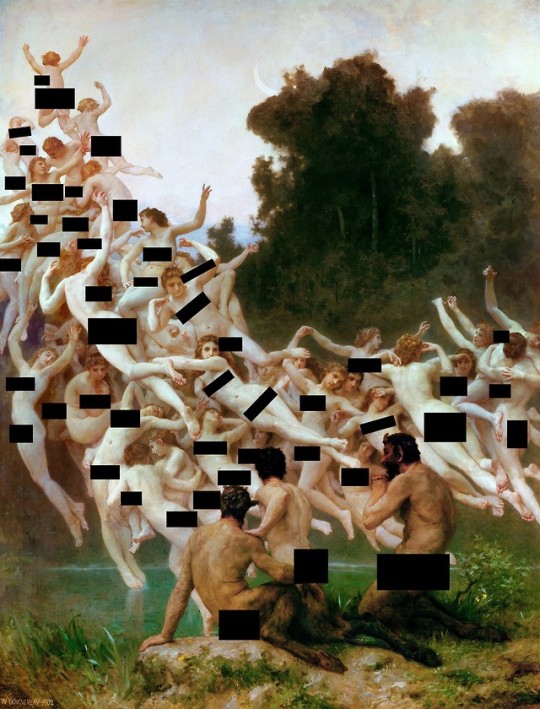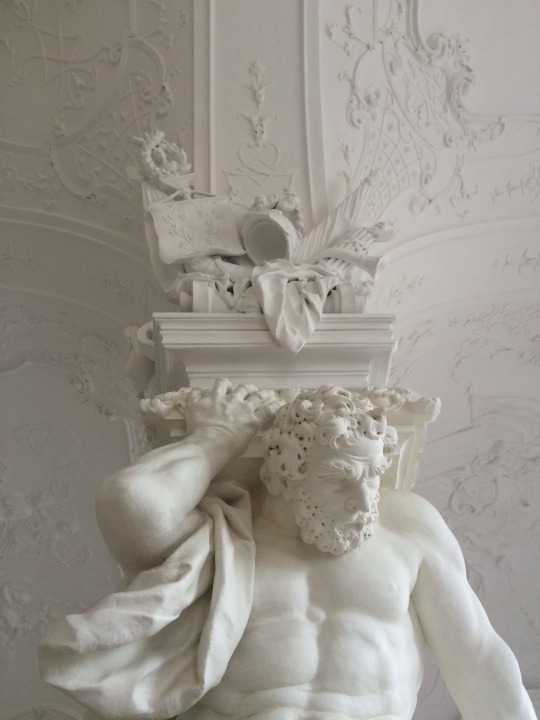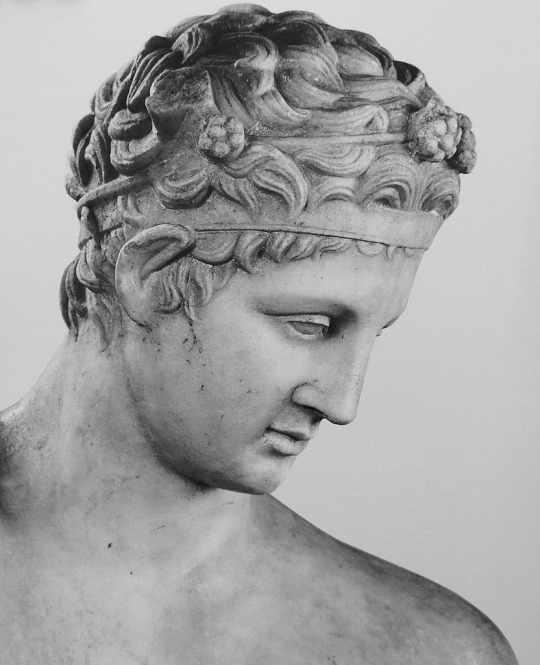How, then, shall I sing of you - you who are in all ways a worthy theme of song?
Don't wanna be here? Send us removal request.
Text
“in the crooks of your body i find my religion” and other things sappho never said
this quotation has been going around recetnly as attributed to sappho, and as a classics student with a particular academic interest in everyone’s favourite tenth muse, I can assure you that this is not a legitimate fragment. one thing bothers me though – where does it actually come from? I’d like to talk a bit about that and about the way we talk about/represent ancient literature on the internet in general. if you have any interest in classics or even just the dark academia/literary aesthetic which so proliferates on this website, I strongly encourage you to read this. all links to sources for this post will be in the comments because I’d really like people to see this and spread it around.
in the crooks of your body I find��� made up fragments of ancient greek poetry? as someone who has read carson’s if not, winter extremely thoroughly and has studied sappho in greek twice during my undergrad degree, I think I can safely say that there is no surviving fragment which could be translated, even loosely, like this. I’ve posted about it on twitter as well, and none of the postgrad students or academics who follow me have chimed in to say they recognise it. I can assure you that a fragment with such a sexual undertone in the context of religion would be extremely interesting to scholars, and I and others would have come across it in article after article if it was real. which it isn’t. so where is it from? other dodgy-looking sappho attributions tend to be easily traceable, by a single google search, to a creative translation or similar. not this one! aside from goodreads (ugh), pretty much every result is from tumblr, with a few from other social media sites like instagram. it’s the title of a footballer rpf from 2015 over which, before I checked the date more carefully, me and my friend shared a moment of pure horror as we wondered if this was the source. but no – the earliest appearance of the quote on tumblr comes from a blog called themotherofrevelation, whose old url seems to be sublimesea. she posted the quotation on the 25th of december, 2014 – I ran a google search to see if the quote appears in any results before that date. it does not. the ‘sappho’ tag on themotherofrevelation’s blog is full of quotations and poems which she attributes directly to sappho but which come from the extremely interpretive ‘translations’ of john myers o’hara – but there’s nothing apart from in the crooks which seems to have no other source. the only real un-tumblr attestation of the line comes from is for my lover, she is fair: a sappho tribute, a poetry collection published by figroot press - but the only date I’ve found in connection with it has been 2017, and it also fails to ascribe the quotation to a particular fragment or translator. did this blogger completely make up a sappho fragment, then? or is it taken from a poem or translation so obscure that it has never found its way to the internet? if anyone knows anything or has any other ideas, please let me know!
sweet mother I cannot think critically about things I read on the internet even if in the crooks does turn out to be lifted from some very obscure fill-in-the-gaps translation, it’d still be extremely bad practice to attribute it directly to sappho with no acknowledgement of the translator. and this, alas, is something tumblr (and probably the internet in general) seems to struggle with. one of the first things I came across in my hunt for the source of in the crooks was a tumblr blog called dailysappho. dailysappho posts a lot of fragments without any credit given to the translator, only to ‘sappho’. this isn’t great, but it’s one thing when the fragments are recognisable, quite another when it’s stuff like this:

this is from a poem which a lot of poetry websites also seem to attribute purely to ‘sappho’, but which comes from a translation from 1920 by arthur sanders way. It claims to be a combination of fragments 121, 123, 122 and 126. I can see bits of some of these fragments and possibly of others (who knows what notation he was using tbh) but it’s far from a close translation of any of them. sappho didn’t say this one either! john myers o’hara seems to be a very common source for misattributed quotes – his collection, from 1910, is essentially a poetic imagining of sappho’s work, a completion of the fragments. one of his that I’ve seen around is “you are the breath of my body, the blood in my veins, and the glowing pulse of my bosom”, from ‘aphrodite’s praise’ which at a glance doesn’t seem to be based on any fragment I can easily recognise. this was posted by tumblr user violentwavesofemotion in 2014, and attributed to sappho with a link to o’hara’s text. that isn’t enough! not naming a translator directly causes widespread misconception, not to mention devalues the incredible work that translators do (if I do say so myself). I’d like to clear up one more quotation and one more issue here – “now in my heart I see clearly a beautiful face shining back at me, stained with love.” this comes from a translation of sappho 4 by willis barnstone, but again, I’ve never seen them credited. the problem here is not that the words are not by sappho – she does seem to have written most of these words in the same poem, but each word appears at the end of a different fragmentary line, of which nothing else is preserved. some lines are missing altogether. the coherency of the quotation in question is willis’ creation - sappho did say these words, but she did not express this sentiment. the verb ‘I see’ isn’t even there at all. in a case like this, checking the translation with carson’s in if not, winter should give you a clear idea of the whereabouts of the lacunae and the liberties taken by the translator. all in all – please credit translators, everyone – remember the confusion and drama caused by not to me not if it’s you (euripides’ orestes tr. anne carson) last year? that was largely due to people not crediting the translator and a lack of understanding of the relationship between translation and the nuance of the text.
I understand, of course, that it’s very hard to factcheck sappho because there is no recent, close-to-the-text translation available in the public domain. it’s even harder to find the original greek online, if not almost impossible. I’m going to post some resources in the comments as well and discuss them briefly here. - there’s a pdf of anne carson’s if not, winter that’s been around for ages online and which seems perfectly safe. this edition contains almost all of the fragments discovered, with both a translation and the corresponding greek text. it’s an incredibly useful resource, but I would advise people not to take carson’s translations as absolute gospel, and especially not her edition of the greek text. there isn’t much of a commentary, either. - if your university has access to the online loeb library, or if your library has physical copies of the loeb editions, those are great! the volume of sappho and alcaeus also has the greek with an english translation, and it will give you the context in which certain fragments were quoted by later authors (and so preserved for us). - when I read and translate sappho, I use the commentaries and editions of denys page, felix budelmann, and david campbell. these aren’t very accessible, but I’m putting them here so that people know that such editions exist. check your libraries! - perseus, the greatest online resource for reading ancient literature, does not have sappho. I’m putting a link to it anyway because it has a lot of other ancient texts and public domain translations. click on a greek or latin word and it’ll tell you what it means!
I also want to emphatically stress that I am not infallible in this situation - I made up a fake sappho fragment as a joke on the netflix subs of neon genesis evangelion a while ago, and failed to make it crystal clear that it wasn’t real. let the following be a lesson to you as it has been to me:


2K notes
·
View notes
Photo

#marmoreus#art#statue#photo#classical art#dont mind me just reblogging this one thing lol#i kind of like still having my blog but not ever posting#or posting like once a year
13K notes
·
View notes
Photo


I did a metrical translation of CIL 4. 5296, a piece of graffiti from Pompeii which comprises of a love poem from one woman to another (we can tell this from the grammatical gender of two of the words).
2K notes
·
View notes
Photo


Hyacinth & Venus by Filippo Parodi (1630-1702)
86K notes
·
View notes
Photo
@veyeolets

61K notes
·
View notes
Photo


~ Feast of Velthur Velch. Date: 3rd—2nd century B.C. Place of origin: Tarquinia, Tomb of the Shields
309 notes
·
View notes
Photo

#casually reblogs something after not being on tumblr for over a year#ill probably be gone for another year after this lmao#art#sculpture#marble#photo
9K notes
·
View notes
Photo


belvedere museum, vienna
24K notes
·
View notes
Quote
hyacinthus is okay because: when he smiled the world lit up and his eyes were always golden, like happiness. and his hands were warm and he laughed like a song, and in the field they could pick the sunniest flowers and kiss and kiss until he lost his head. (he held that disc in his hands for a long time, after. the wind touseled his hair and laughed at him, and he wanted to scream.) cyparissus is okay because: his hair always glittered in the goldlight and his mouth curved just like his bow, it was so endearing, and yet he towered and shone and shone like the god he was. he breathed words shaped from light itself. he always knew what to say, with music notes dancing from his lips, with prose, spilling from his smile; always what to say, all up until he didn’t. and he wasted away. (he sees stags in the woods sometimes that could have blossoms wrapped ‘round the antlers, but they never do. he wishes they did.) icarus is okay because: it was every touch and word and promise that always kept him dreaming, and he saw sunlight in his teeth. he was all golds and yellows and he felt like a fire when they touched. he had been drowning anyway, with him, but then, it had been something else that filled his lungs, and splashed his skin, instead of ocean and wax. (and for a while afterwards, he stared up at birds and thought about how they never worry about falling, either. the divine healer felt sick.) and apollo is okay because: he isn’t. he collects lovers like tombstones and hopes that the next will, at least, die in peace. guilt is unbecoming of a god.
of lovers and bloodstains and sun gods // a.t. (via clytemnetsra)
1K notes
·
View notes
Photo

Dante and Virgil, Boston Museum.
2K notes
·
View notes
Photo


thomas jefferson memorial + aesthetics
7K notes
·
View notes
Photo


Praxiteles and Polykleitos
4K notes
·
View notes
Photo

Pousada Palácio de Estói, Portugal (Aug 2016)
#i just came back from portugal and it was pretty#this is an 18th century palace converted to a hotel#so so beautiful!!#a lot of classical inspired stuff including copies of the apollo belvedere and praxiteles' hermes and dionysus#im not a good photographer but i liked this picture#photo#portugal#black and white#photography#travel#sculpture#marmoreus
2 notes
·
View notes
Photo

Paul Chabas - The nymphs of the dance, 1899
228 notes
·
View notes
Photo

Wilhelm Kotarbiński (1848-1921) - Roman Orgy
4K notes
·
View notes


